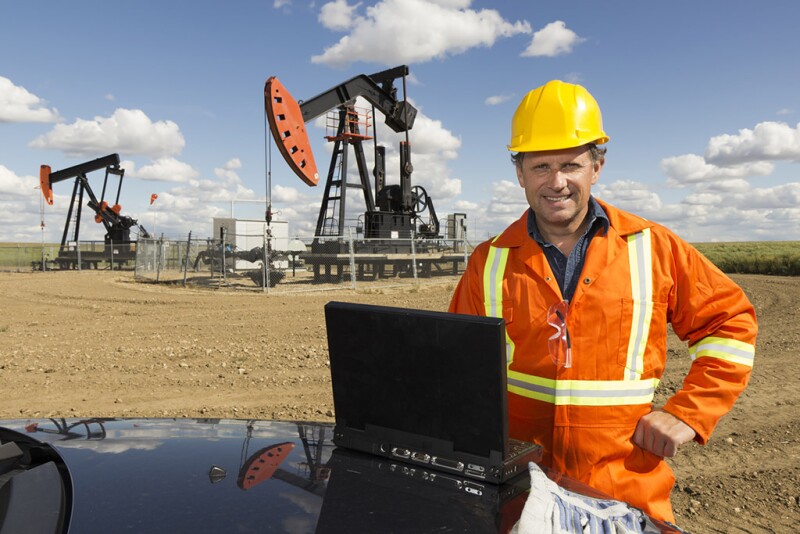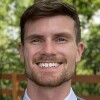I’m honestly not too sure what I pictured life to look like after college. As a college student, it’s difficult to see beyond graduation and your first job offer. I definitely did not foresee co-founding an oilfield educational company in college, selling it to a public company, and then continuing to run it while working in a full-time engineering role with one of the largest oil producers in the US. It seems everyone has their own unique story and passion. This is the story of mine.
My journey into the oil and gas industry started after my first visit to a drilling rig. It was, and still is, astounding to me how we can extract exorbitant amounts of oil and gas from the microscopic pore spaces of rocks thousands of feet below us. It was even more astounding that the public—including myself at the time—knew next to nothing about this incredible industry, how things actually worked, and the amazing technology behind it all.
In 2015, I began studying petroleum engineering at Marietta College. Like many, I was a victim of poor timing. Internships quickly became scarce as oil prices plunged, but my love for learning how things truly work wasn’t fazed. I took advantage of every opportunity to be exposed to the industry and often set up job shadows with engineers who would become great supporters and mentors of mine. Once I learned something incredible, I couldn’t help but share it with others at the college. This quickly turned into running a simulated oil and gas company with other students, cofounding a hands-on expo for the community and students to see some of the industry’s most innovative tools in person, and coordinating multiple field trips. I was, however, greatly blessed with internships every summer through college, working for Triad Hunter (now a part of Southwestern Energy), Chesapeake Energy, and Anadarko Petroleum Corp.
In my junior year, Sebastian Ziaja—a sophomore who shared similar passions—and I decided to build a course to sell online that overviews the basics of the upstream oil and gas industry. We wanted the course to tie together everything from leasing, directional drilling, hydraulic fracturing, types of artificial lift, and water disposal, in a way that made sense for someone new to the industry. That “course” ended up being 15 hours of content, and we set it up for sale on a website we named Oilfield Basics. However, once we started showing it to others and getting license deals, we quickly decided that this concept needed to be expanded to include courses from all aspects of the industry. We didn’t know much beyond the material in our “Upstream 101” course, so we decided we would empower individuals from across the industry to share their knowledge with others. That quickly became partnerships with numerous companies to produce courses, educational videos, and more. Before long, we even launched a podcast called the Oilfield Basics Discover Podcast, which as of me writing this article is on its 89th episode. At roughly an hour each, that’s about 89 hours of interview content with recognized subject matter experts and leaders from virtually every discipline in upstream and midstream oil and gas. Few other podcasts can make this claim.
I see it like this: Two students took action to start pushing our industry to more openly share basic information about what we do and how we do it, so that we as an industry can benefit by learning from each other. This also helps our communities more easily understand what we actually do as an industry. We recognized that we were too dependent on in-person learning, and it seemed that most information was kept under lock and key. It also seemed as if everyone was scared that their competitors would take over the market, just because they saw a 5-minute video explainer. We still battle this mentality today but are seeing a tremendous value when everyone from the CEO to the pumper understands the “why” and “how” behind what they do. Our platform today enables this, and the ongoing COVID-19 pandemic has only spotlighted the industry’s reliance on an old model for learning and knowledge sharing.
While Sebastian and I were able to grow our content catalog and form partnerships, we found ourselves largely directionless. We needed someone who better understood business development to assist us with turning our many ideas for the platform into reality. That led to multiple discussions with interested partners, but we ended up with an attractive offer to be acquired by a public company named American Energy Partners, based out of Colorado. Long story short, we went for it. They had the experience in the areas we were looking for, brought numerous resources to the table, and made the company independent of two college kids. As part of the agreement, I would agree to continue to run the day-to-day operations of Oilfield Basics as president. Less than a year into the deal, I ended up running a virtual internship program of six fantastic candidates, all of whom helped us greatly expand our course and video offerings. Course-wise, we’ve partnered with dozens of professionals to produce material around artificial lift, oil and gas law, economic evaluation, lost circulation during drilling, and so much more—some even being used for accreditation.
While all of this was happening, I was beginning my career with Anadarko (now Oxy) as a full-time engineer. Many might believe this to be crazy, but I find these two paths to be quite complementary. My job at Oxy allows me to grow and develop in my profession, while Oilfield Basics fuels me with new ideas and innovative solutions. I get to be led at Oxy, while I lead others at Oilfield Basics. I get to help meet corporate objectives at Oxy, while I get to help set them at Oilfield Basics. I get to be interviewed at Oxy, while I get to interview others for Oilfield Basics. Being involved with both, although time-consuming and challenging, provides me with a unique viewpoint and set of experiences that I’m blessed to have.
My message here is to follow your passions, build community, take advantage of opportunities, share knowledge with others, and keep learning. If you want something to happen, figure out who to work with to make it a reality. The right decisions might not always be clear, but if you seek out what will make you grow the most as an individual, friend, and professional, the stakes should stay low. Keep life and all of its big decisions in perspective. If you would like to contribute back to our community through the sharing of knowledge, please reach out to me.
[The article was sourced from the author by TWA editor Stephen Forrester.]


